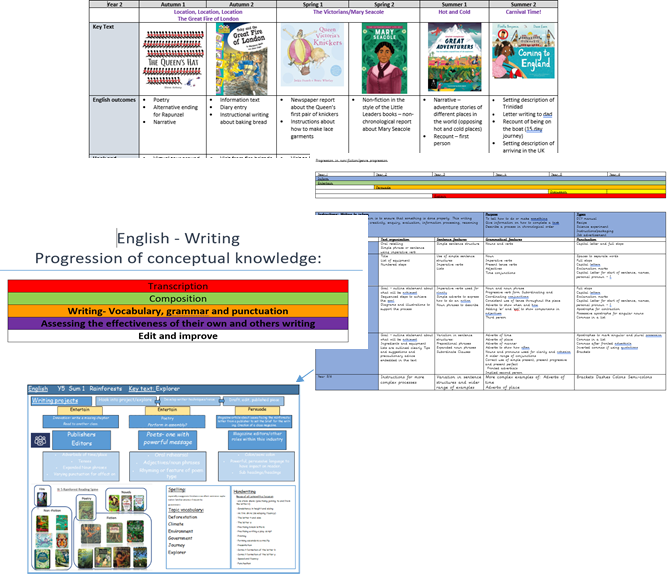At Warren, all children will leave their time at school knowing their voice as a writer is valued. Children will have strong written skills in order to prepare them for their futures, ensuring they reach their potential. At Warren, we teach writing with a purpose. Ensuring children are equipped with the skills they need to write with purpose, creativity, and confidence. Children are inspired to write using key texts that not only support their writing skills but their vocabulary/language acquisition. Children will draw on their knowledge from accessing a range of texts and will develop their own writing style. Through different oracy strategies and scaffolds children are able to write for a particular audience, able to select the correct techniques to use.
We intend that all children are leaders of their own writing by offering opportunities for children to write independently, editing their writing and seeing this writing published. All children are given a range of tools and strategies to support them in articulating their ideas in a clear and concise way, whilst also giving children the freedom to write with creativity and flair. Children are able to apply their skills of writing across the curriculum.
The teaching of writing begins in EYFS, with the development of fine motor skills and phonetic knowledge. This is built on year by year to ensure children are confident writers. Reading runs closely alongside writing, children need to be fluent readers in order to support their writing.
The overarching aim for English in the National Curriculum is to promote high standards of language and literacy by equipping pupils with a strong command of the spoken and written language. The national curriculum for writing aims to ensure that all pupils:
At Warren Academy, our writing curriculum is closely linked to the theme or topic which each class has been allocated for that specific half term/term. A key text is then linked to the theme or topic, and writing outcomes are planned based around the key text. Between 2-3 writing outcomes are produced within a half term, covering fictional, non-fiction and poetic style writing. Grammar objectives are then planned to be taught within each of these units, giving context for the grammar that has been taught to be applied within writing outcomes.

Here is an example of a typical half term of writing for a year group:
The teaching of writing is supported through a variety of strategies and scaffolds:
Handwriting is taught daily across school, supported by the Oxford owl scheme. Teachers refer to the handwriting progression document to ensure consistency across all children’s handwriting and to identify children who may need additional support with this.
In EYFS/Year 1- Spelling is taught phonetically and through the teaching of tricky words and high frequency words. This will continue until the children are ready (Y2) to move to Phase 6 and spelling rules. This is taught daily for 15 minutes. Children will explore the Etymology and Morphology of words to deepen their spelling skills and knowledge. This supports the children’s progression as they are taught more complex spelling rules.
Spelling is vital to allow children to write for a range of purposes and to encourage a love of writing. It also allows children to use a wide range of vocabulary within their writing and to apply spelling patterns and rules confidently.